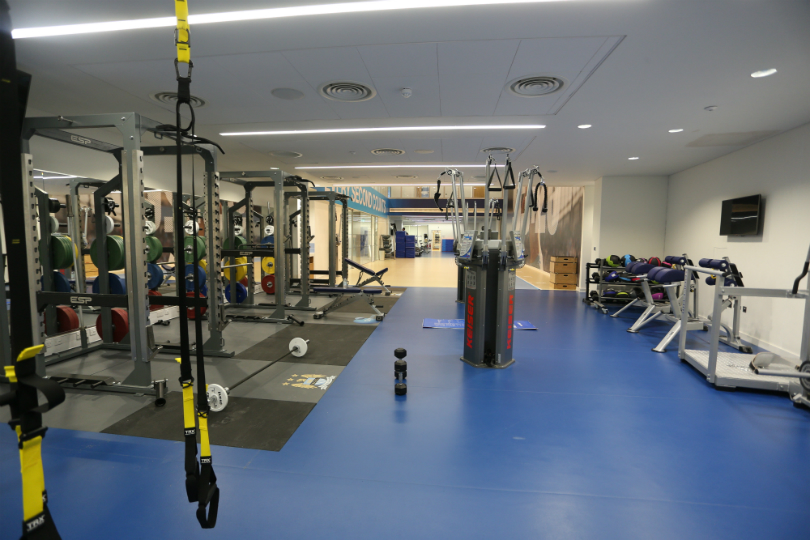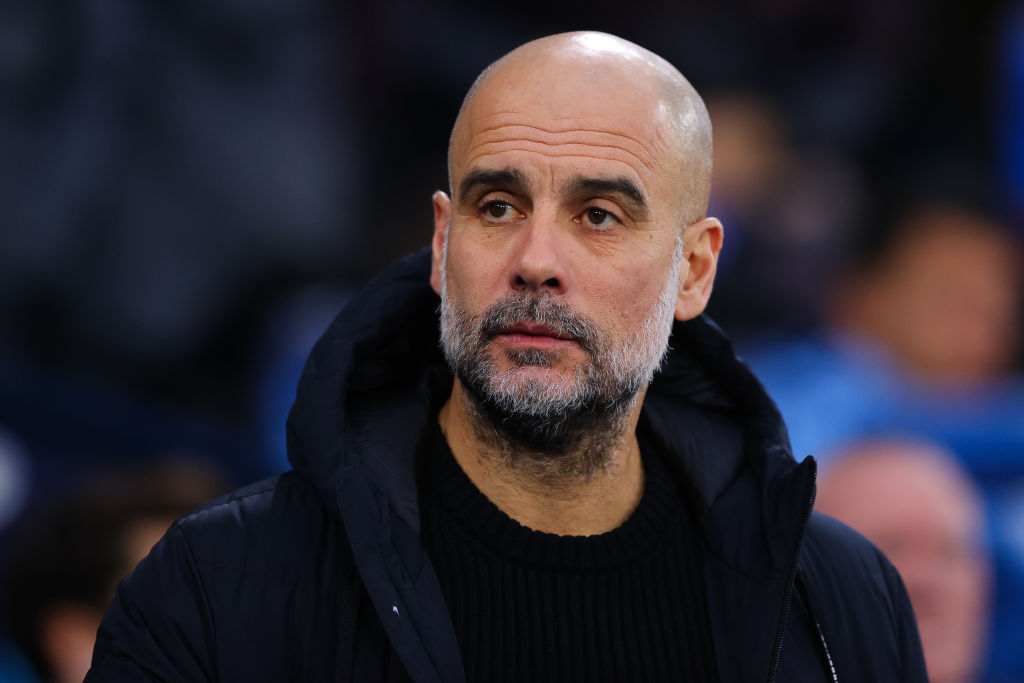How to design a Premier League gym programme
Performance expert and author of 'The Strength & Conditioning Bible: How to train like a pro athlete', Nick Grantham, reveals how Premier League footballers train in the gym and how you can copy them

How often do I need to train in the gym to get stronger?
It depends on the individual. If you are a beginner, you may initially see improvements with just one session per week because it may take you a week to recover from the soreness of that first session. But, ideally, what you are looking for is two to three sessions per week. In football you tend to train the players hard in the gym during pre-season and then maintain their fitness throughout the rest of the season. Two to three sessions per week is ideal for that.
Recommended story: Leicester City academy gym session
Should I use single or multi-joint exercises?
Muscles don’t operate in isolation, they work in groups. That’s the way the body works out on the pitch when you’re making a tackle or striking a ball. In terms of an efficient and time effective way of training, you should train as many muscle groups as possible at the same time. You can do this by using compound moves, such as back squats, pull-ups and lunges. Any movement which uses multiple muscle groups is beneficial because it transfers directly to the pitch.
Recommended story: Boost your shooting power
Are machines or weights best?
Get FourFourTwo Newsletter
The best features, fun and footballing quizzes, straight to your inbox every week.
Avoid using machines as they only target one muscle at a time. If you want to be strong, you need to be able to produce more force. To achieve this, start by using bilateral exercises (those that use both arms or both legs). A phrase I use a lot is ‘you can’t shoot a canon out of a canoe.’ You need a strong base to produce a lot of force, so you need to use both feet or arms to begin with. Unilateral exercises (which use just one leg) are more advanced, but are also good because a lot of your movements in football are on one leg. There is a place for both types of exercises.
Recommended story: Should you use free weights or machines?
Which are the best exercises for football?
I’d advise focusing mainly on the lower body. Each session you should perform a squat pattern exercise (for example a back squat, deadlift or lunge). Then a jumping exercise (box jumps are really good) to develop power. A hip-hinge exercise (straight-leg deadlifts are great), would be my go to exercise for the hamstrings and lower back. I’d match this up with hip thrusts, which again work your hamstrings and develop your glutes, which need to be strong for running and jumping. Upper body wise, I’d recommend big movements such as press-ups, inverse pulls, and some form of chin-ups. Bent over rows and bench presses are also great for improving upper body strength.
Recommended story: How to do a pull-up
How strong do I need to be for football?
You may have a player who is really strong in the gym but can’t use that strength on the pitch in a split second. It’s a delicate balancing act - you need to be strong but also be able to move quickly on the pitch in different directions and use your strength to make tackles, hold off opponents and shoot with power, for example. If you increase the size of your muscles to the point where you can no longer move effectively around the pitch, then you need to address that. If you’re strong enough to run quickly, compete physically, cover ground effectively and steer clear of injury then you have the perfect balance. Let your performances on the pitch decide how strong you need to be.
Recommended story: How to stay strong in the challenge
How many sets and reps should I do?
It depends on your aim. Most casual gym-goers will do a general three or four sets of 10-12 reps. This is fine if you need to put on a bit of muscle mass so you can handle contact from tackles and challenges. But if you want to become more powerful, which most footballers need to do, you should be performing 1-6 repetitions. The lower the number of reps you do, the more weight you should be lifting. This will improve your ability to produce force and be powerful. During a season stick to repetitions of 3-6 reps.
Do I need to do additional core work?
If you’re a beginner and have a weak core then it’s a good idea. If you struggle to perform basic exercises like planks then it’s a good idea to do some core work. However, as soon as you start doing compound exercises, you will use your core for most exercises, so it’s not absolutely necessary. Most athletes want to do core work, probably for their physical appearance, but I don’t think it’s essential if you’re performing the exercises I’ve mentioned regularly and with good technique.
